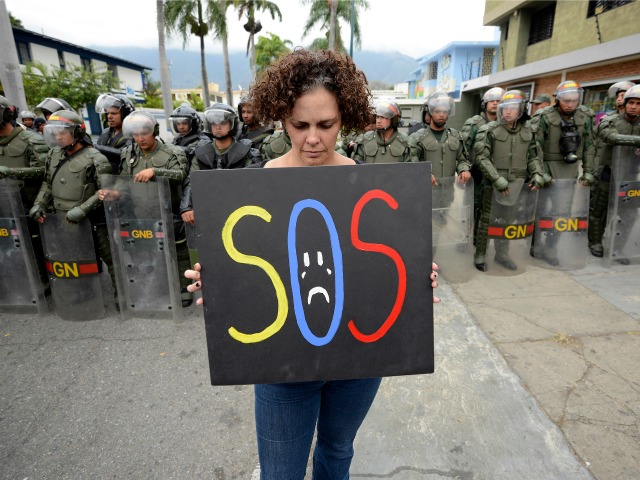
The socialist government of Venezuelan President Nicolás Maduro continues to try to convince the world that opposition leader María Corina Machado is a “murderer” involved in an elaborate plot to kill him – a distraction from the rampant poverty and strife in the nation that has been ranked the world’s “most miserable.”
On his weekend radio program In Contact with Maduro, the head of state once again accused Machado, U.S. Ambassador to Colombia Kevin Whitaker, and several other Venezuelan opposition leaders of conspiring to kill him – an accusation widely dismissed in May when initially floated. Citing a “a diabolical, perverse cocktail” of individuals plotting his death, Maduro insisted that “I am not exaggerating when I call [Machado] a murderer.” “She was planning violence and murder in this country,” he said of the deputy, ousted from Venezuela’s National Assembly for appealing to the Organization of American States to intervene in the government violence against peaceful protesters in Venezuela.
In addition to comments by Maduro, Venezuela’s Attorney General has called for an investigation into the accusations, calling Machado into the judiciary for testimony this week. In response, Machado has replied that the accusations are baseless. “Mr. Maduro has sentenced me without a single shred of proof. He called me a murderer; he is defaming me and is inciting hatred,” she said in a statement. “In the past hour, I received direct threats against my life and the life of my children; I am being sentenced without proof or trial,” she concluded.
Machado also took a swing at Maduro via Twitter, asking, “Maduro, who ordered you to choose a woman as your target for attack? Fidel Castro? Cuban G2 [special forces]?”
The campaign against Machado and conspiracy theory involving the United States are part of a larger ruse to distract from the government’s inability to manage the country’s economy. Scarcity in the nation is so high that the government is forcing merchants to ration water, after implementing measures limiting the number of essential goods Venezuelans can buy, such as eggs, milk, and flour.
A study released this month by the Cato Institute has ranked Venezuela #1 on its misery index. The misery index analyzes “inflation, lending rates, and unemployment rates… and year-on-year per capita GDP growth” in a metric that finds which countries are most suitable for working and living. The Institute’s study explains that, while Venezuela holds the top spot using official government numbers, it underestimates the level of struggle that individuals face in daily living. The Venezuelan government, the study explains, “imposes a complex web of government price controls. In consequence, when one observes prices for the items that comprise Venezuela’s price index, many of the prices will be those mandated by the government, not the market. So, the inflation rates for the basket will be artificially low.”

COMMENTS
Please let us know if you're having issues with commenting.